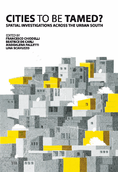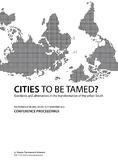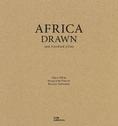habitability networks premi tesi di dottorato outskirts & suburbs innovation inclusive processes events landscape history safety & security urban practices participation paesaggio urban regeneration maps immigration regulation local development renaissance housing energy news conferences local plans ecological networks
Cities to be Tamed?
Spatial Investigations across the
Urban South
Francesco Chiodelli, Beatrice De Carli, Maddalena Falletti and Lina Scavuzzo (edited by)
Hardcover, 295 pages | 8.3 x 5.9 x 1.1 inches, 2013 | ISBN 9781443852302
Across the global South, the rapid urbanisation and uneven development that have occurred over the past few decades have brought to the surface a tight connection between social conflicts and urban space. Indeed, the physical conformation of urban space is one of the primary factors that trigger social tensions, with repercussions at the metropolitan, regional and national scales. Such tensions are related to the conditions of social and spatial inequality which characterise many urban areas across the South; they can also be connected to contingent political and institutional orders which find in the materiality of space both the means and the cause of conflicts among different groups, amidst diverging territorial demands and the overlapping of competing struggles for power. At the same time, new possibilities arise in the concreteness of space, including innovative forms of local activism, adapting strategies of self-organisation, and unconventional relations between the 'formal' and the 'informal' city. On acknowledging the multifaceted nature of the urban space, there arises a question which constitutes the core problem addressed by the book: are cities to be tamed?
This volume gathers a series of cross-disciplinary contributions on these topics, spanning from architecture and urban design, to planning, social theory and geography. These contributions revolve around two core themes. The first concerns the agency of design in contexts of 'informality' and centres on the missing/unexpected/pursued exchange between projects and realities. The second concerns the complex relationship between spatial planning, politics, and conflicts in contexts characterised by marked ethnic, political, and social tensions.
CONTENTS
• Preface
PART I: Spaces of Formal/Informal Interplay
• Chapter One
Formal/Informal Interplays: Spatial Tensions and Design Practices
Beatrice De Carli and Maddalena Falletti
• Chapter Two
Practice in the Mess of Informality
Nabeel Hamdi
• Chapter Three
Crossover Modernisms: Life and Afterlife in Michenzani, Zanzibar
Viviana d’Auria and Annelies De Nijs
• Chapter Four
Chequered Urbanism: Confrontations Between Culture and Economy in Urbanising Amman
Joud M.I. Khasawneh and Bruno De Meulder
• Chapter Five
Socio-Spatial Assemblages: The Backbone of Informal Settlement Regeneration
Carmen Mendoza-Arroyo
• Chapter Six
New Planning Tools? Extending Water and Electricity Networks in Irregular Settlements of Lima, Peru
Laure Criqui
• Chapter Seven
The Spatial Imaginaries of Informal Settlement, HIV and AIDS, and the State in Southern African Cities
Colin Marx
PART II: Spaces of Power
• Chapter Eight
Power in Space: Space Regulation amidst Techniques and Politics in the Global South
Francesco Chiodelli and Lina Scavuzzo
• Chapter Nine
Transformative and Counter-Hegemonic Planning Regimes: South Africa and Lebanon
Scott A. Bollens
• Chapter Ten
Informality as Control: The Legal Geography of Colonisation of the West Bank
Erez Tzfadia
• Chapter Eleven
Sovereignty, Planning and Gray Space: Illegal Construction in Sarajevo and Jerusalem
Olivier Legrand and Oren Yiftachel
• Chapter Twelve
Politics of Urban Form: Architecture of Tehran (1921–53)
Hamed Khosravi
• Chapter Thirteen
Unravelling Spaces of Representation through Insurgent Planning Actions
Ignacio Castillo Ulloa
• Chapter Fourteen
The Contestation of Space and Ethics in Singapore: A Case of Dirty Hands in Planning
Jeffrey Chan and Faith Wong
• Afterword
Alessandro Balducci
• Contributors
ABOUT THE AUTHORS:
Francesco Chiodelli is Research Fellow at the Gran Sasso Science Institute in L'Aquila, Italy, where he teaches on the international doctoral programme in Urban Studies.
Beatrice De Carli is Postgraduate Design Tutor at the University of Sheffield, School of Architecture, and an Associate at Architecture Sans Frontieres UK.
Maddalena Falletti is Teaching Fellow in Urban Design at MaHS/MaUSP, KU Leuven, Belgium, and Tutor on the PhD Programme in Territorial Government and Design at DAStU, Politecnico di Milano.
Lina Scavuzzo is Associate Lecturer at the Politecnico di Milano, School of Architecture and Society, and an Associate of Architects without Borders - Italy.
Related articles:
- Conference Proceedings CITIES TO BE TAMED?Standards and alternatives in the transformation of the urban SouthMilan, 15-17 November 2012
- CITIES TO BE TAMED? Standards and alternatives in the transformation of the urban South International Conference (CALL FOR PAPERS CLOSED)
-
Africa Drawn
One Hundred Cities
Online resources and links




Planum
The Journal of Urbanism
ISSN 1723-0993
owned by
Istituto Nazionale di Urbanistica
published by
Planum Association
ISSN 1723-0993 | Registered at Court of Rome 4/12/2001, num. 514/2001
Web site realized by ChannelWeb & Planum Association | Powered by BEdita 3





